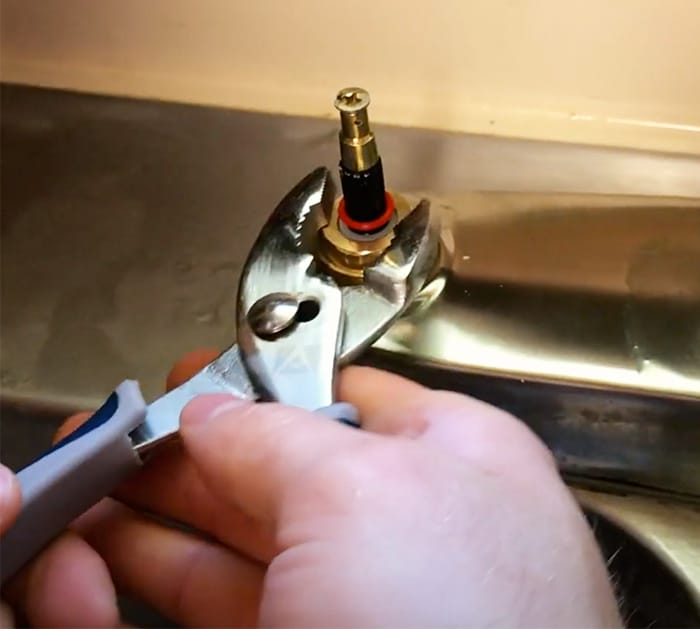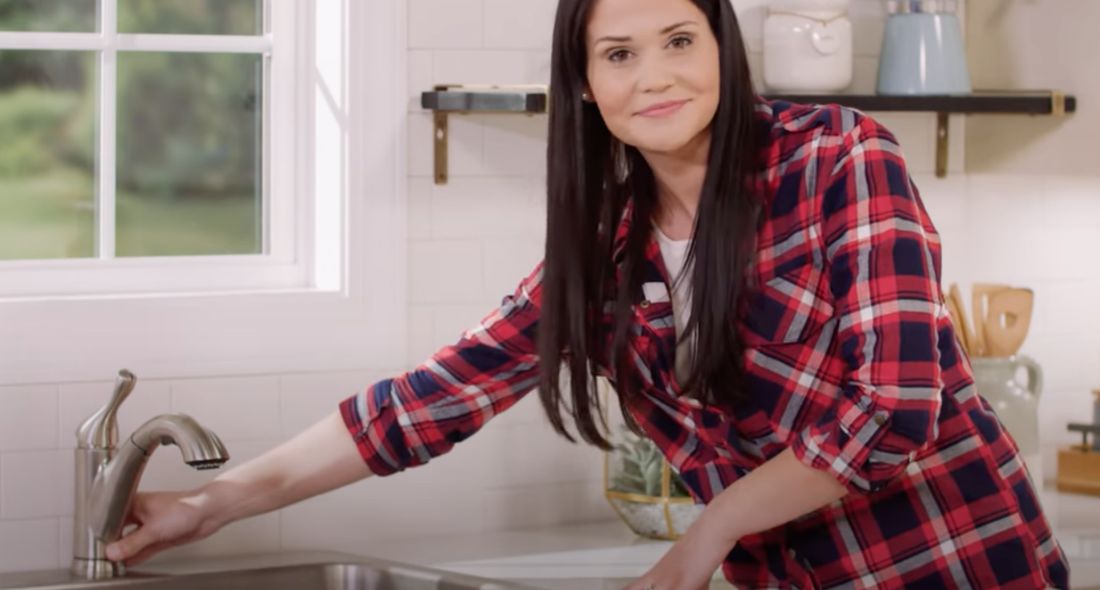An Factors Behind Correcting a Faulty Faucet
An Factors Behind Correcting a Faulty Faucet
Blog Article
What are your beliefs about Leaky Faucets: Why They Happen & What to Do About Them?

Dripping taps might appear like a small hassle, yet their impact surpasses just the nuisance of the audio. From wasting water to sustaining unneeded financial costs and health risks, neglecting a trickling tap can bring about various consequences. In this write-up, we'll delve into why it's essential to address this typical family problem immediately and properly.
Waste of Water
Environmental Impact
Dripping faucets add dramatically to water wastefulness. According to the Epa (EPA), a single faucet dripping at one drip per secondly can lose more than 3,000 gallons of water per year. This not just strains water sources however also influences ecological communities and wildlife dependent on them.
Financial Expenses
Enhanced Water Costs
Beyond the environmental effect, dripping taps can inflate water expenses considerably. The built up wastefulness in time converts into greater utility costs, which can have been avoided with prompt fixings.
Prospective Building Damage
Additionally, extended trickling can lead to damage to fixtures and surface areas bordering the faucet. Water accumulation can create staining, rust, and even structural problems if left ignored, causing extra fixing costs.
Health Issues
Mold and Mildew Growth
The consistent visibility of dampness from a trickling tap develops an ideal environment for mold and mold development. These fungis not only compromise indoor air top quality yet likewise pose wellness threats, especially for individuals with respiratory problems or allergies.
Waterborne Diseases
Stationary water in leaking taps can end up being a breeding ground for microorganisms and various other pathogens, enhancing the threat of waterborne illness. Contaminants such as Legionella germs thrive in stationary water, potentially leading to serious health problems when ingested or inhaled.
Do it yourself vs. Professional Repair service
Advantages and disadvantages of Do It Yourself Repair Service
While some might attempt to take care of a trickling faucet themselves, DIY fixings come with their own set of difficulties. Without correct expertise and tools, DIY attempts can intensify the issue or result in incomplete repair work, extending the issue.
Advantages of Hiring a Professional Plumber
Hiring a specialist plumber guarantees that the underlying root cause of the trickling tap is addressed effectively. Plumbing technicians have the expertise and devices to detect and repair faucet problems successfully, saving time and reducing the danger of more damages.
Step-by-Step Overview to Fixing a Dripping Faucet
Tools Needed
Prior to trying to take care of a trickling faucet, collect the required devices, including a flexible wrench, screwdrivers, substitute components (such as washers or cartridges), and plumber's tape.
Typical Tap Issues and Their Solutions
Identify the kind of tap and the specific problem creating the drip. Common troubles consist of damaged washers, corroded valve seats, or defective O-rings. Describe supplier directions or online tutorials for detailed support on repair work.
Safety nets
Routine Maintenance Tips
To avoid dripping taps, perform routine upkeep such as cleansing aerators, inspecting for leaks, and replacing worn-out parts promptly. Additionally, consider mounting water-saving tools or updating to extra reliable fixtures.
Importance of Prompt Repairs
Resolving leaking faucets as quickly as they're seen protects against additional water waste and potential damages, ultimately conserving both water and cash in the long run.
Influence On Residential Property Value
Perception of Well-Maintained Building
Preserving a residential property in good condition, including attending to maintenance problems like dripping taps, boosts its viewed worth and desirability amongst possible customers or tenants.
Impact on Resale Worth
Residences with properly maintained plumbing fixtures, including taps, command greater resale worths in the real estate market. Attending to trickling taps can contribute to a positive perception throughout property evaluations and settlements.
Ecological Duty
Specific Payment to Preservation
Taking responsibility for dealing with leaking taps aligns with broader efforts toward water preservation and environmental sustainability. Every individual's activities collectively make a considerable influence on maintaining priceless sources.
Lasting Living Practices
By focusing on punctual fixings and taking on water-saving routines, people contribute to sustainable living practices that benefit both present and future generations.
Verdict
Resolving a leaking faucet surpasses plain comfort; it's a necessary action toward conserving water, reducing economic expenses, and protecting health and property. Whether via DIY repairs or specialist support, doing something about it to take care of dripping faucets is a tiny yet impactful means to promote accountable stewardship of sources and contribute to a much healthier, more sustainable future.
How to Fix a Dripping or Leaky Faucet
A leaking faucet is one of the most common problems that homeowners encounter, but it being commonplace doesn’t make it any less annoying. The constant drip drip drip of a leaking bathtub faucet, showerhead, or sink tap can disturb your home’s serenity. Left neglected, a dripping faucet can also result in higher water bills and discoloration or mold growth in your sink or plumbing fixtures.
Fortunately, you don’t have to be a trained plumber to know how to stop a dripping faucet. With some basic tools, replacement parts, and a little patience, leaky faucet repair is a breeze. In this article, we’ll explain what causes dripping faucets and how you can fix them.
What Causes a Leaking Faucet?
Kitchen and bathroom faucets come in all manner of designs, but most involve some combination of valves, O-rings, seals, and washers. The O-ring is usually the weakest link, but any one of these pieces can wear down over time. Heat, moisture, temperature fluctuations, minerals, mold, and movement can contribute to warping and corrosion, breaking the watertight seal. This just comes with the territory of being a homeowner. Everything is always subject to wear and tear, and some component parts of your appliances and fixtures need to be replaced on occasion. At least replacement O-rings are cheap!
More rarely, dripping faucets can be a symptom of excessively high water pressure. Were this the case in your home, you would probably notice that the leak is not isolated to one faucet. Water pressure issues are harder to resolve on your own. We recommend contacting a professional plumber if you suspect your water pressure is too high.
How to Fix a Dripping Faucet
Pipe wrench or monkey wrench Allen wrench set Screwdrivers Old towel or rag Shut off the water.
Before you do anything, you need to turn off the water to keep from drenching your kitchen or bathroom. You should find a valve under the sink and against the wall. Once you’ve turned this valve, try turning the faucet on to confirm that the water source has been cut off.
If you can’t locate your local valve for the faucet you’re working on, you can always shut off the water to the house at the main valve. Of course, this will prohibit anyone from using the sinks, showers, or toilets while you’re working on the faucet that’s giving you trouble.
Plug or block the drain.
You’ll be disassembling the faucet and removing some small bits of hardware. Plug the drain with a stopper or rag to avoid the possibility of a small screw falling into your P-trap.
Take apart the faucet assembly.
There are several varieties of kitchen and bathroom faucets, each with its own manner of assembly. For detailed instructions on how to disassemble your faucet, you can refer to the fixture’s manual or contact the manufacturer. If you know whether you have a ball, disc, cartridge, or compression faucet, you can find detailed schematics online.
In general, you need to begin by removing the faucet handles. You might notice a small screw that you’ll need to remove with a screwdriver or Allen wrench. If you don’t see any visible securing hardware, it’s likely hidden under a decorative cap that can be unscrewed or popped off with flathead screwdriver.
Remove each piece methodically, consulting a schematic when necessary. Take notes or arrange the pieces in such a way to make it easier to correctly reassemble the faucet later.
Remove the cartridge.
Once you’ve removed the handles and securing hardware, you should be able to remove the valve cartridge or stem. Some cartridges will slide right out. Other faucet models will require you to loosen a nut with a pipe wrench before you can remove the valve stem.
Examine the exposed hardware.
With the cartridge or stem removed, inspect the component parts. Check the rubber O-rings for wear and tear. Also examine the seat washer for corrosion or other damage. These pieces are usually the responsible parties for a dripping faucet, but it’s worth inspecting the other component parts while you have the faucet disassembled.
Find replacement parts.
Once you’ve identified which faucet component has failed, find an identical replacement. Your local hardware store should have O-rings, seat washers, and other standard components in stock. If you have a luxury or uncommon faucet, you may have to contact the manufacturer for a replacement part.
It’s a good idea to take your old parts with you to the hardware store so you can compare them with the store’s inventory and be sure you’re purchasing the correct replacement.
Reassemble the faucet.
With your new parts in hand, reconstruct the faucet and handles. Don’t be tempted to overtighten screws or nuts. You might think this could create a better seal, but it can instead damage or bend a delicate part of the assembly and create a new problem for you.
Turn on the water and test the faucet.
The only thing left to do is test your work. Unplug the sink, turn the water back on, and try the faucet. Congratulate yourself on a job well done!
https://www.libertyhomeguard.com/how-to-fix-a-dripping-or-leaky-faucet/

We had been made aware of that editorial on Leaky Faucets: Why They Happen & What to Do About Them from an acquaintance on another site. Sharing is caring. Helping others is fun. Thanks for your time invested reading it.
Report this page